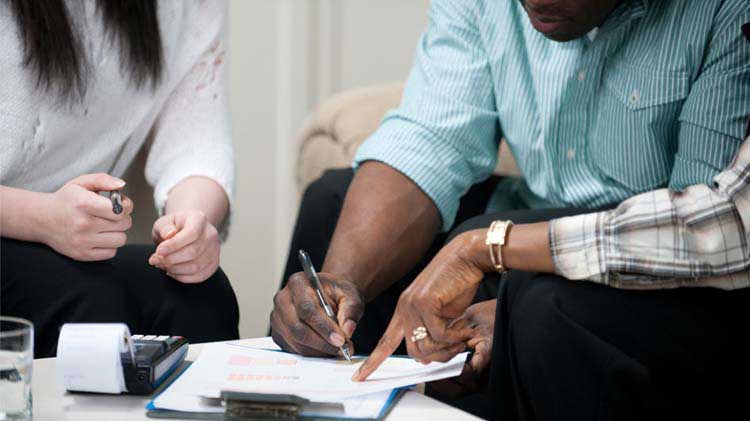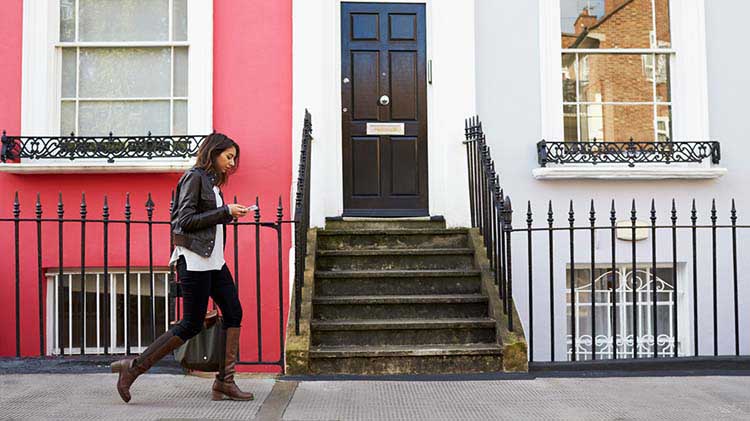The lease signing process: What you need to know
Make sure you ask the landlord-tenant questions before signing a lease and moving in.
After you've decided to rent and found your perfect apartment, it's tempting to quickly sign the rental agreement and move in. But, take a step back. Ask the landlord-tenant questions. Be informed. Then, choose to move in, or not.
Be prepared with these rental application tips
Checking your credit score
Before you take the final step, request a credit report. Landlords and leasing agents use a potential tenant's credit to make sure they have a positive history of paying bills and paying them on time. By knowing in advance if there are any items of concern, you have an opportunity to fix them or talk to the landlord in advance about them.
Review deposits and fees
Deposits and fees can sometimes get tricky if they haven't been discussed thoroughly with your landlord before signing a lease. Knowing all the ins and outs of the security deposit and any additional fees of your rental can make you feel much more at ease.
Get a renters insurance quote
Want to protect your stuff?
Provide references
Be ready with a list of references from previous landlords. And if you’ve never rented before, you may still have a list of references that can include employers, friends, coworkers and even college professors. You’ll need to include their name, phone number, address and an email address. Be sure your references speak positively about you and that they have given permission to be contacted.
Be ready with financials
You’ll want to be ready to show proof of employment so the landlord is confident you can pay your rent. And you might have to provide bank account information — so have your account numbers handy. Bring your checkbook with available funds in case you need to make a payment to hold a rental.
Sign the lease
Exactly when do you sign a lease for an apartment or rental? The lease may begin as soon as you sign it. But will you take possession and move in right after you sign? Some landlords may want new tenants to sign the lease as close as possible to the date the previous tenant vacates. But keep in mind, there may be a delay in the actual move in date since the property might need repairs and cleaning. You could be paying rent on the property for days or weeks before you move in. Try to sign the lease as close as possible to your move in date or request the start of the lease to begin just before or the day you move in.
Can a landlord change the lease after it is signed?
Generally speaking, the answer is no. A lease is a binding contract between the landlord and the tenant once it has been signed. Changes by either party could have a negative impact. If both parties agree that changes are needed, an addendum could be added that would be signed by the landlord and the tenant. Another time that changes can be made would be during the lease renewal.
Can you back out of a lease before it starts? Some leases may include a set number of days after signing the lease in which either party may cancel the lease. Be sure to read the lease before signing so you know what you are committing to.
Questions to ask a landlord
Signing a contract is a big deal! Here are some landlord-tenant questions to get you started.
- How is the property managed? Clarify “Who should I contact for maintenance-related issues, and who should I pay rent to?” It should be clear what role the property manager plays vs. the landlord. Or if the landlord — in the case that you’re renting a property other than an apartment — handles all relative issues.
- Is renters insurance required? It’s becoming more common for landlords to ask renters to purchase and maintain renters insurance. If they require it, they'll typically ask for proof of insurance. If you forget to ask this question, it should be listed in documents provided to you by the landlord in preparation of you renting.
- How much notice will you give me before entering my unit? All rental agreements should have a Right of Entry clause, which states what will happen when your landlord needs to enter your unit. An appropriate amount of warning time is about 24 hours, but check the legal requirements in your state. Keep in mind that landlords are required by law to give you notice before entering, unless it's an emergency. Understanding the rules in place helps you know what to expect when a situation arises.
- Are pets allowed? If you have a pet, or plan to get one, you need to know if they are allowed. Also, ask “What are the pet-related rules and if there is a pet deposit or monthly pet rent?” Even if you don't have a pet, this is still an important question to ask. If your landlord allows pets, it typically indicates there will be other residents in your building with them. If you have concerns about pets in your new environment, then you should find out sooner rather than later.
- Are there noise restriction rules? A common renter complaint is having to deal with noisy neighbors. So ask your landlord if there's a clause in the rental agreement that addresses disruptive behavior. Most rental agreements have a clause that prohibits noise past a certain hour.
- What is the length of the rental agreement? Double-check the duration of your rental agreement. Never assume that yours is the standard 12-months.
- What should I expect towards the end of my rental agreement? What are my renewal options? Ask if your potential landlord offers renewal options, and how. Landlords typically offer rental renewal agreements on a case-by-case basis. They may ask if you want to renew around 90 days before your current rental agreement expires. Some landlords have an automatic renewal clause, which they should make you aware of in advance.
Sometimes landlords automatically increase rent by a certain amount. In this case, you should know the increase before considering a rental agreement renewal. You also might ask if your landlord offers month-to-month tenancy after your current lease is up, just in case.
Inquiring about rental agreement renewals may seem like we're getting ahead of ourselves, but it's best to understand your options in advance. Be informed so you feel comfortable signing your lease.
After you sign your lease and move into your new home, remember, your rental is still the landlord's property. Find out how to keep your rental in tip top shape.




